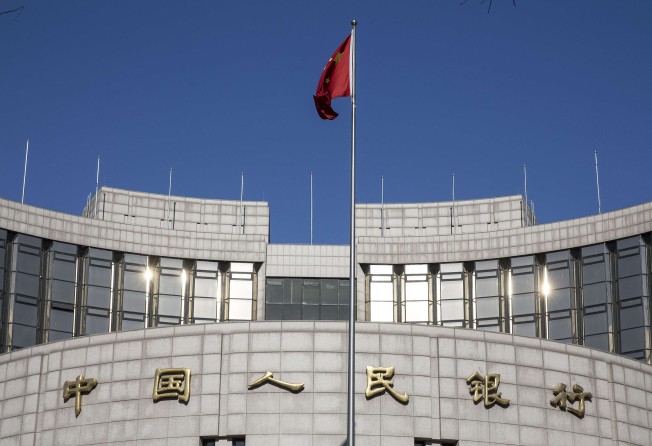Does missing risk reference in China’s central bank report signal shift in Beijing’s thinking?
Omission of usual references to the danger of regional risk could mean a move towards allowing local defaults

A key line about regional financial risks is missing from the latest monetary policy report published by China’s central bank, fanning speculation that a subtle but significant shift is taking place in Beijing’s thinking over the country’s enormous debt problem.
In the previous 18 quarters, the People’s Bank of China has never failed to mention “preventing systemic and regional financial risks” in its quarterly report, a lengthy document reviewing China’s economic and financial performance and detailing PBOC policy considerations. But in its latest 62-page report published on Friday, the central bank didn’t mention regional risks.
The tweak came at a time when the government is trying to keep a delicate balance between defusing a debt bomb on one hand and propelling growth on the other.
As Beijing is pledging to cut the “leverage” ratio in the economy, borrowing by companies and projects under local government protection continues to rise, with a widespread belief that Beijing will be there for a bail-out if they are unable to repay the debts.
“It may indicate a policy fine-tuning from the top,” said Deng Haiqing, the chief economist for brokerage house Jiuzhou Securities.
Deng said that if the line did not return to future official documents, Beijing might be willing to allow more debt defaults and bankruptcies associated with local governments.
As nationwide growth slows to its lowest level in a quarter of century, places with big exposure to commodities price swings and inefficient state industrial production are bearing the brunt of the slowdown, putting heavy pressure on local financing and banking systems.
Financial risks are already visible in China’s rust-belt regions. In Liaoning province, for instance, growth is already in contraction, and investors in a Liaoning state-owned steelmaker bond last month even threatened to boycott all of the province’s securities as a form of financial sanction.
Ditching the line about “regional risks” was simply “a recognition of reality” by the central government, said Chen Xingdong, the chief China economist with BNP Paribas in Beijing. “Regional financial risks are already a reality in China.”
“The central bank may feel it’s time to stop trying cover every naked swimmer’s bottom,” said Chen, developing the famous line by Warren Buffett that “only when the tide goes out do you discover who’s been swimming naked”.
The PBOC didn’t explain the change of wording. In the report published on its website, it said it would continue to create a “neutral but accommodative” monetary environment for growth.
Meanwhile, the central bank highlighted the risks of a quickly rising leverage ratio and the polarisation of regional economic performance in the report.
“It makes sense to expose more risks,” said Zhao Yang, the chief China economist at Nomura in Hong Kong. “Tolerance of defaults and closures should be increased” if Beijing was truly determined to deepen structural changes in economy.
Beijing’s stance of not rushing to rescue any local institution or authority was still clear at the G20 conference of finance ministers and central bankers in Chengdu last month. At the closing press conference, Lou Jiwei, the finance minister, said Beijing wouldn’t start any bail-out easily.
But in a highly centralised country where all local authorities were branches of the central power, it was not possible for Beijing to stand indifferent to any regional financial crisis, noted Chen of BNP Paribas.
“Unlike in a country of federal states, there’s just no legal basis for local governments in China to go bust,” he said.